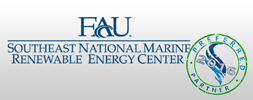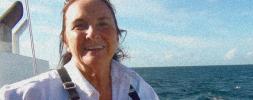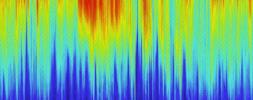The SNMREC Preferred Partner Program is an opportunity for our industry partners to collaborate more fully with the Center. This program is designed to dedicate SNMREC experts and resources to individual industry partner development needs.
Publication TR-10-148
Reference: Fisher, A.D., J.H. VanZwieten, and T.S. VanZwieten, 2010: Station keeping of small outboard-powered boats. Proceedings, IEEE Oceans 2012 Sydney, ISBN 978-1-4244-5221-7.
Abstract: Three station keeping controllers have been developed which work to minimize displacement of a small outboard powered vessel from a desired location. Each of these three controllers has a common initial layer that uses fixed-gain feedback control to calculate the desired heading of the vessel. A second control layer uses a common fixed-gain feedback controller to calculate the net forward thrust, one of two algorithms for controlling engine angle (Fixed-Gain PID or PID with Adaptively Augmented Gains), and one of two algorithms for differential throttle control (Fixed-Gain PID and PID with Adaptive Differential Throttle gains), which work together to eliminate heading error. The three selected controllers are evaluated using a numerical simulation of a 33-foot center console vessel with twin outboards that is subject to wave, wind, and current disturbances. Each controller is tested for its ability to maintain position in the presence of three sets of environmental disturbances. These algorithms were tested with current velocity of 1.5 m/s, significant wave height of 0.5 m, and wind speeds of 2, 5, and 10 m/s. These values were chosen to model conditions a small vessel may experience in the Gulf Stream off of Fort Lauderdale. The Fixed-gain PID controller progressively got worse as wind speeds increased, while the controllers using adaptive methodologies showed consistent performance over all weather conditions and decreased heading error by as much as 20%. Thus, enhanced robustness to environmental changes has been gained by using an adaptive algorithm.



